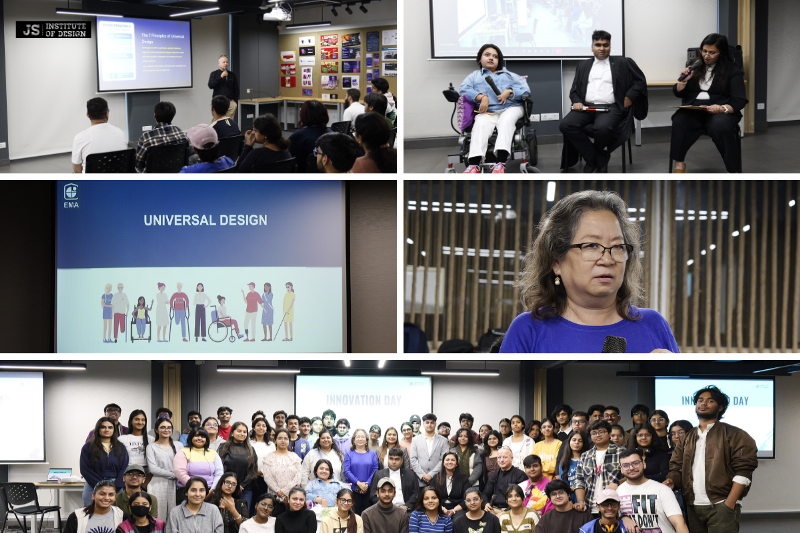New Delhi: JS Institute of Design, New Delhi, held a workshop on Universal Design, aiming to understand and apply design for accessibility in space, visual and screen design, digital and print design. The program, which was led
by EMA Consultants, was designed to give students rigorous, practical experience in developing physically inclusive spaces and design for digital platforms.
The event commenced with an audience poll, asking participants to identify the varied beneficiaries of accessible architecture and to share their perspectives on disability. This exercise prepared the groundwork for a fundamental introductory session that outlined
the moral imperative and critical context of accessible design, emphasizing the significance of creating user-centered concepts that are suited to the unique requirements of various special need demographics.
The Accessibility Audit Challenge served as the workshop’s focal point. During the challenge, 75 students were divided into 7 working groups and given the responsibility of conducting a hands-on campus audit. To deeply understand the struggles of differently
abled people, each group had to simulate a variety of disabilities, such as blindness and limited mobility. To complete the task, students had to identify and record specific architectural and infrastructure barriers, such as uneven ramp slopes or a lack of
tactile paving and suggest ways to improve them.
“The fundamental philosophy of design education must center on inclusivity, which means designing equitably for all people,”
said Nien Siao, Dean of JSID, highlighting the significance of accessibility in design education. “Our social fabric is intricately woven with design, which influences the technology, artwork, systems, and products we use daily. At JSID, we empower
our students to solve complex human problems by first identifying root issues and then executing optimal solutions. Our goal with programs like this is to expose our students to important, real-world problems and prepare them to provide solutions that are
impactful and widely available. This practical method allows our students to understand the importance of accessibility and empathy as essential beginning points for the entire design process rather than as afterthoughts.”
Following the Accessibility Challenge, each student group presented the biggest obstacles they faced after the on-site audit, summarizing their research and offering practical, actionable fixes based on the Seven Principles of Universal Design (UD). The program
also included robust educational components, covering the Seven Principles of Universal Design (UD) and their real-world implementation in architectural and infrastructure projects. Additionally, a concentrated presentation offered a thorough examination
of digital and communication accessibility, covering the challenges of developing digital platforms, accessible documents, and successful communication tactics.
Crucially, a facilitated discussion and experience-sharing session with guests with special needs who had lived through similar experiences marked the event’s conclusion. These visitors gave insightful firsthand accounts, addressed specific queries, and
presented a human-centered viewpoint on the significant effects of inclusive design.
Concluding the program, Prof. Nien Siao, on behalf of the institute, announced a renewed commitment: Universal Design and Inclusivity will be integrated into the core of the design learning curriculum starting from the Foundation level.
JSID, in collaboration with France’s École Intuit Lab, offers exclusive new-age programs in Game Design, UI/UX, and Digital Design, and Interior Design. Combining global teaching pedagogy and state-of-the-art infrastructure, JSID aims to provide experiential,
project-based learning to its students.

